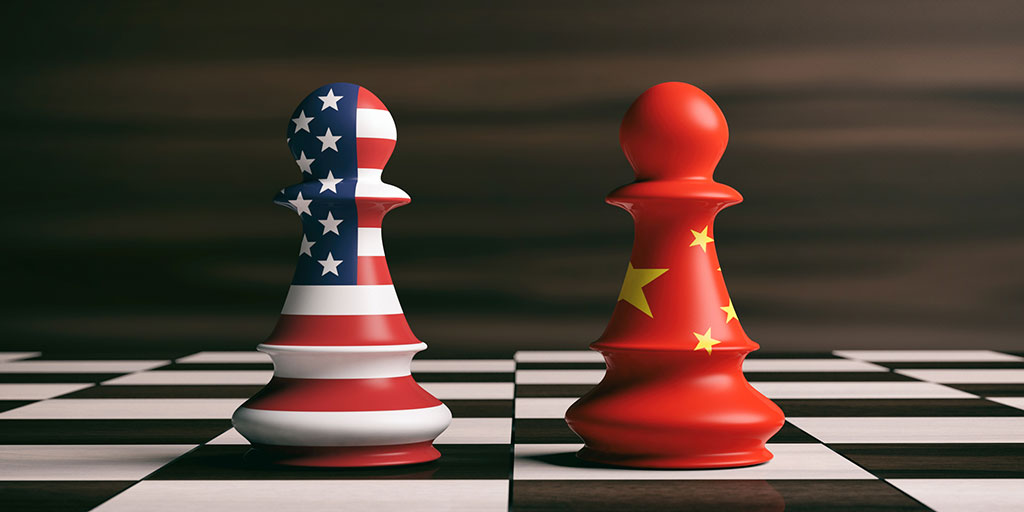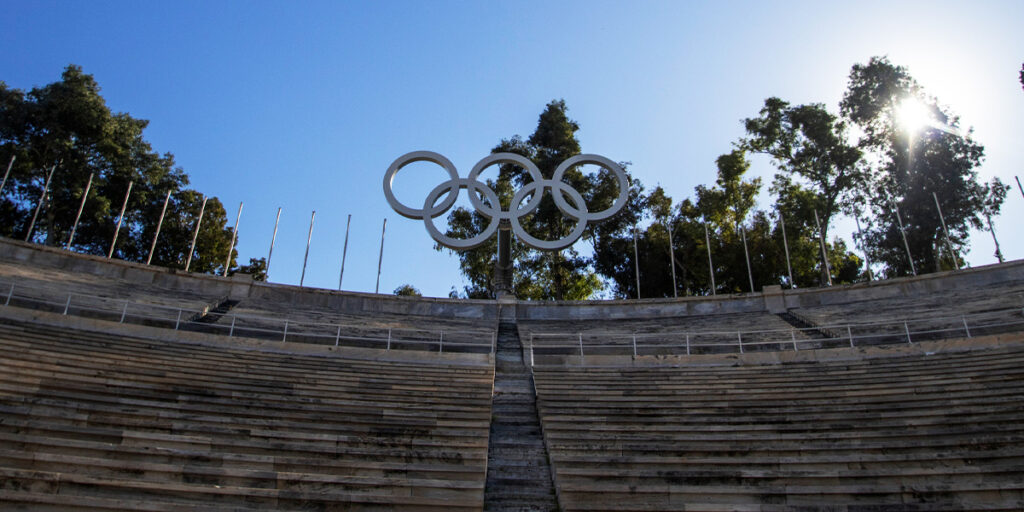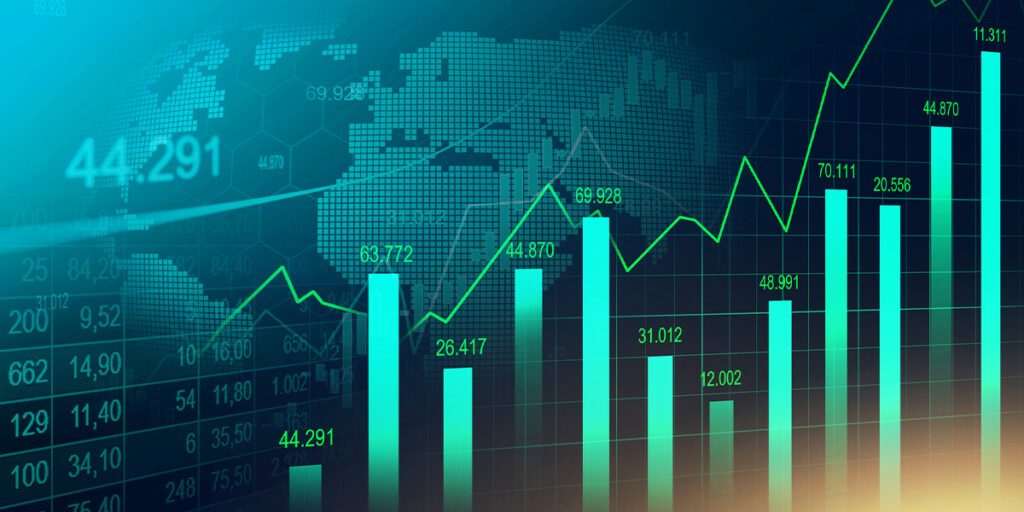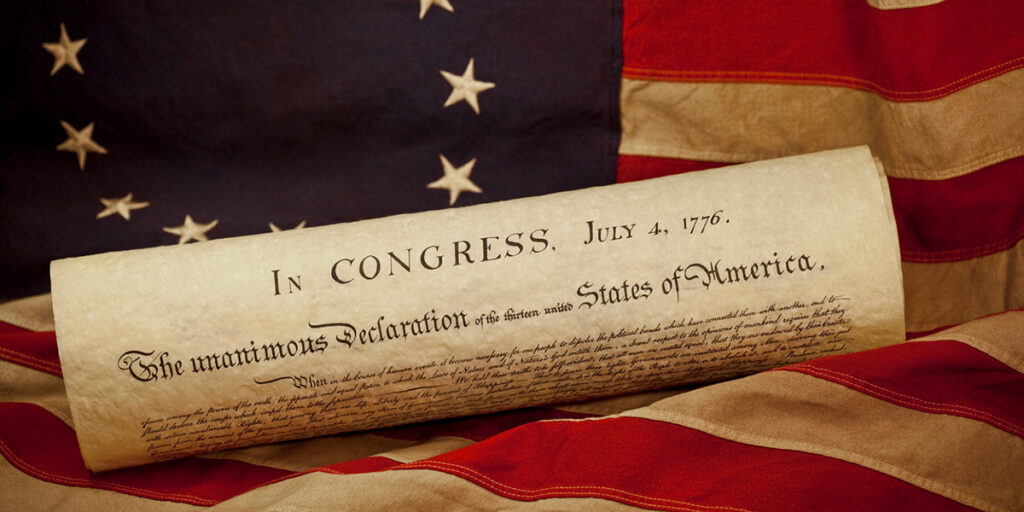There was some turbulence this week on Wall Street. Price action got choppier, with a bit of a downward bias. Corrective price action was inevitable and more than due after such a strong first half of the year. The S&P closed out June at fresh, all-time highs. It’s still basically there. Falling Treasury yields were a lubricant for stocks, particularly in Tech. But Treasury yields kept sliding. It’s good, until it’s not. What previously was considered bullish, with the price of money falling, is now creating some anxiety as to why it’s happening and does it suggest problems ahead? The explanation for the sell-off ranges from peak growth in recovery from the depths of the pandemic, the threat and expansion of the Delta variant of the coronavirus, the Fed tightening as well as China’s big crackdown. I want to explore the last subject as it doesn’t seem to be getting the attention it deserves and the long-term implications are serious and real.
While we Americans were celebrating Independence Day, China held its own national festivity. It was a party for the Party, celebrating 100 years. July marked a century for the Chinese Communist Party, the governing body of the People’s Republic of China. The celebration focused heavily on the successes of the last couple of decades. China’s Communist Party didn’t have much to show for the early days on the Global Stage.
In front of an estimated audience of 70,000 people in Tiananmen Square, President Xi gave an aggressive speech of Chinese unity. Xi made no mention of recent US efforts to gather an alliance against China’s expansive global policies or suppression of civil liberties in Hong Kong, Taiwan and Xinjiang. The President insisted that China, and China alone, would decide its path forward with no outside meddling in its affairs. Xi declared that no foreign power would bully or oppress the Chinese government. A New Cold War continues to brew. The toxicity of the rhetoric is growing too.
China faces many challenges, just like every nation around the globe. It’s nothing new for this nearly 5,000 year-old civilization. How it faces the challenges is age-old too. China is obsessed with control. It has aspirations of economic and geopolitical dominance in the Digital Age. Education has been the foundation for China’s emergence. The growing Superpower has made a massive investment in science and technology, and has become a cutting-edge leader in Artificial Intelligence and Medicine. China is a legitimate rival and adversary to the United States and Silicon Valley. But its approach is quite different. As I stated before, China is obsessed with control.
It was no coincidence that the Chinese government sent a hot Chinese IPO skidding on Wall Street ice this week. Didi is the company. It’s referred to as the “Uber of China.” There is a Big Data crackdown going down by Beijing. China ordered Chinese companies, listed on US stock exchanges, to immediately be removed from app stores worldwide. China’s obsession for control is the driver. Beijing is making it clear who’s the boss. They don’t want their companies too powerful without Beijing. Taking it further, China especially does not want other countries having access to their data. Fearful of their growing influence, China is in the middle of a sweeping crackdown on the nation’s biggest tech companies. You may recall, last November, Beijing pulled the planned IPO of Fintech giant Ant Group. Earlier in the year, it hit Alibaba with a record $2.8 Billion fine for abusing its market dominance. Alibaba Founder Jack Ma was missing for weeks. The Chinese government said he took a leave. He was alleged to be too powerful and less subservient to Beijing. Jack Ma has been pretty quiet ever since, after years of pushing for free-market policies. China doesn’t seem to like the threats.
China has a population of 1.4 Billion people. It is 4X larger than the population of the US. It’s a major market for commerce. Didi is the most dominant ride-hailing business in China, accounting for nearly 90% of total trips taken in 2020. The company has access to a significant amount of data. Data drives innovation. Since when does China care about privacy and personal data? When it’s visible to foreign powers. That’s a threat. Investments from Wall Street open up visibility into the Chinese Economy. China doesn’t like that. China wants control. Just like Oil was the Prize of the 20th century, it’s Data that drives the Digital Age.
Despite the massive investment in China’s modernization, there remain some rather antiquated laws and norms that can drag down progress. The Chinese Hukou System still exists today. This system was designed to control the migration of people. It’s referred to as the household registration system. The Hukou System requires all Chinese citizens to register at birth according to their place of residence or household. Each citizen can only have one registered household. It basically ties workers to their place of birth. It’s very limiting in a world of global expansion. It doesn’t stop there. China has an issue outside its borders too.
In order to attract the top talent and innovators, China would need to level the playing field between state-owned Tech giants and nimble entrepreneurs. The nation would have to reduce barriers to foreign participation in its economy and financial system. Wall Street has been a bridge of finance and innovation between the nations. China has enjoyed American capital for years. It just doesn’t seem to care for the obligations and strings attached. While the Superpowers tighten the screws on each other, innovative companies and entrepreneurs are caught in the middle. That bridge is cracking.
China doesn’t have a lot of friends. Lack of trust and supreme focus on yourself tends to repel others. It’s not engaging. China has long had a contentious relationship with Japan. They share little in ideology. South Korea shares little in ideology with China too. Trade is what connects them, in addition to the Sea of Japan, and the chunk of land that is North Korea. China uses many countries for resources. China and Russia are not friends. But they share the goal of a weaker America, every single day. I suppose that term the enemy of your enemy is your friend applies here. These aren’t the kind of friends that you go to ballgames or birthday parties with. These aren’t your neighborhood buddies. It’s much different. They’re the type of friends who use people for personal gain. You know those types. Only these guys take it to a much different level.
China is in a bit of a predicament; And it knows it. In fact, it must be terrified of it. The recent G7 summit saw a return to old buddies trying to bring back old ways. President Biden declared America is back. He was embraced with open arms by his European counterparts. Keep in mind, there’s no guarantee of success here. The G7 is not the dominant economic force it once was and Europe is not a growth engine either. But relationships do matter, large scale and small. It’s good to have friends. It’s engaging. It comes with respect and a whole lot of trust. The world is paying very close attention to who the US is today and will be tomorrow. If Chinese ties with America and its allies continue to unravel, the cross-border flow of ideas and innovations that has helped propel China’s rise will just as quickly dry up. Beijing is already getting a preview of what that might look like. Europe is backing away from a major investment agreement, and India has closed the door to Chinese technology. Australia is guarded too.
China is expected to overtake the US as the world’s largest economy. It was supposed to be by the end of the decade. Chinese leaders are doing their best to make it seem imminent and inevitable. It might be never. The thing is, you can never really trust economic data from Beijing. They pretty much report what they want people to think. What if the reported data is so inflated, China isn’t even as close as it already appears? It cannot be ruled out. There’s increasing evidence it just might be the case. The Chinese Stock Market has not done well in 2021, basically breakeven on the year. It is still lower than it was in 2015, not to mention its all-time high reached back in 2007. Despite the growth of this economic powerhouse, investors have not been rewarded. Confidence is an important factor, one that continues to be lacking with investors in this Asian Superpower.
Taiwan is a critical subject. China doesn’t just view Taiwan as an island. It sees it as one of its own, like Hawaii to America. Taiwan has something that China really wants and America really doesn’t want China to have it. Taiwan produces semiconductors, lots of them. Taiwan produces more than half the chips around the globe. Semiconductors are the brains of computers and other digital devices. They’re in the device you’re using right now. Apple alone consumes roughly ¼ of Taiwan Semi’s chip output. China wants to own it. The United States wants them to not. It’s a big deal now, and will be for the foreseeable future.
China has also been cracking down big time on cryptocurrencies. The People’s Republic is jealous of the US Dollar. The Dollar is the World’s Reserve Currency. For how much longer is an important question. A universal digital currency could ultimately replace the Dollar. But China doesn’t like cryptos. Apparently, China will not allow any currencies that are not regulated by the government. And that’s the foundation of cryptocurrencies. They are completely independent. They are free from control by a bank or a government. China needs control. It has an insatiable hunger for control. They want a tight grip on pretty much everything. But control is a tricky thing. Sometimes the best approach is to hang on loosely, but don’t let go. Because, if you squeeze too tightly, you’re going to lose control. Pretty wise words, eh? Ok, I stole that from a 1980’s song. But it’s not wrong.
An unwelcome scenario for President Xi would be China following the same fate as Japan. It was also touted as a potential challenger to the United States before it crashed in the 1980s. Japan was the technological leader with cars, TVs and consumer electronics. Who could forget the Sony Walkman? It didn’t last long. Japan has still yet to recover. A combination of reform failure, international isolation and financial crisis could prevent China from reaching the top. This is a challenging path for China. But it is absolutely committed to success.
Despite all of the flaws of the USA, it remains a formidable force with a track record of dominance and evolutionary innovation. America has had its own issues with its innovators. From Rockefeller to Gates to Bezos, the visionaries that became billionaires and moguls have not escaped Washington’s wrath. Today, the Tech Titans are under a microscope. The White House continues to put pressure on them. A new Executive Order is going after competition as well as M&A. Silicon Valley faces steep competition, inside and outside American borders. The Tech Titans compete better than anyone, anywhere. That means something on the global stage. Innovative strength is essential. The next few years are going to be critical in order to sustain and expand their success. What China does will influence greatly. What Washington does will too. It’s the Digital Age and this is uncharted territory. Both the US and China are in it to win it. They both chose very different paths. Economic, technological, geopolitical and military dominance is at stake. In ways, it is like a New Cold War. We study this very closely.
As my favorite philosopher, Yogi Berra, phrased it so eloquently, “The future ain’t what it used to be.” Yes indeed, Yogi. It never has. It never will. But the future is coming. It’s already here. We are always trying to make sense of things today and anticipate what’s next tomorrow.
Have a nice weekend. We’ll be back, dark and early on Monday.
Mike







